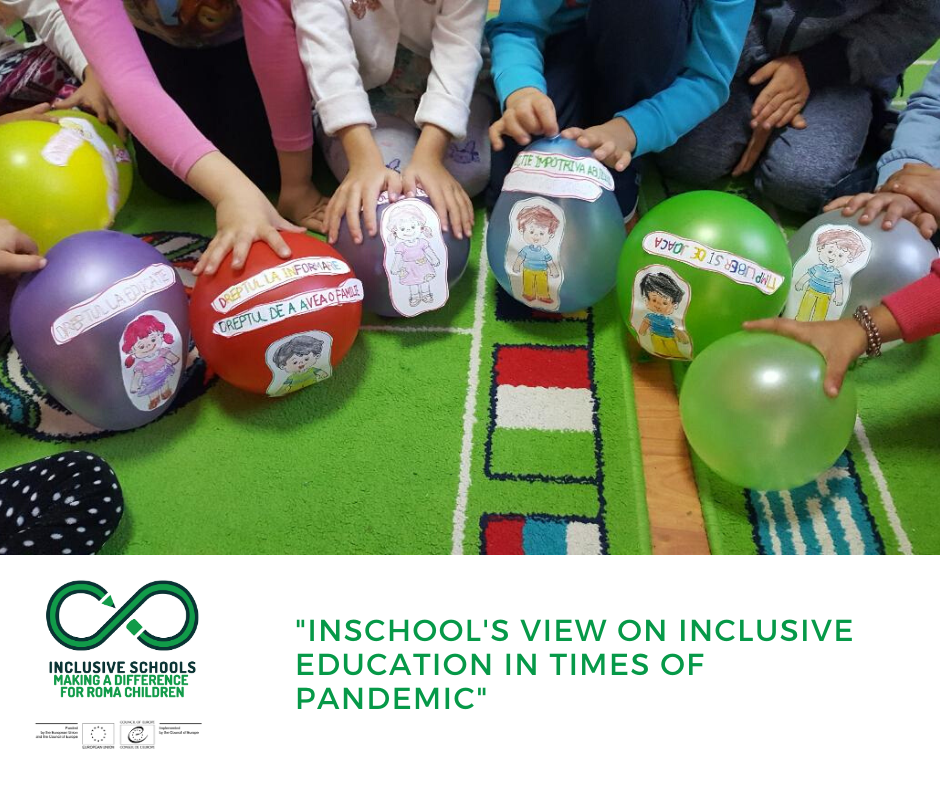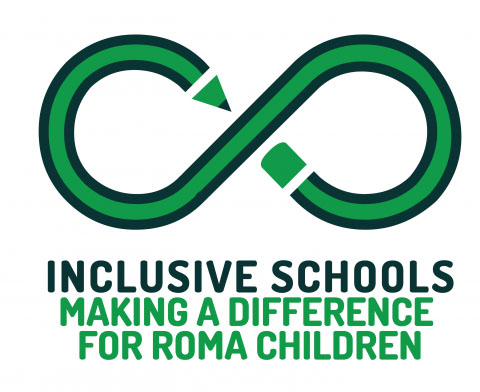On 30 June 2020, a webinar on Inclusive Education in Times of Covid-19 was organised jointly by the European Commission against Racism and Intolerance (ECRI) and the Greek Chairmanship of the Council of Europe’s Committee of Ministers. The event was convened following the closure of schools in most European countries and switching to online and/or distance education due to Covid-19 outbreak. It tackled particularly the problem of the negative impact it had on children in vulnerable situations, including Roma and migrant children, whose already difficult circumstances were further exacerbated by the crisis.
The webinar brought together a number of key international and national stakeholders working against racism and discrimination of children from vulnerable background, and education experts among others. The main objective of the meeting was to discuss the means of countering any forms of discrimination faced by those groups of pupils, during the time of exceptional schooling arrangements as a result of government responses to Covid-19. Importantly, the discussions also aimed to find remedies to any instances of increased structural discrimination, including the lack of access to devices, internet connection or limitation to parental capabilities to guide and assist their children.
An integral part in ensuring inclusive education, especially during these challenging times, lies with the Teachers working with the children. Not only are they the key in providing creative and effective education via various channels, but they are also aware of the needs and difficulties faced by their pupils. Therefore, INSCHOOL, the joint project of the European Union and Council of Europe was highly relevant in the discussion. During the pandemic, INSCHOOL teams worked closely with the schools to identify the most pressing needs of pupils, teachers and parents, and managed to respond to these needs via provision of small grants (more information can be found here).
This is why one of the INSCHOOL project schools was represented by Mr Valentin Dragos Biro, the Principal of “Nicolae Titulescu” school in Buzau, Romania. This intervention provided various examples of the initiatives the school introduced following the outbreak of Covid-19 and how it managed to include all children in an adapted manner. These examples, which included the re-launch of a learning platform, teacher support and creating WhatsApp groups with parents will constitute a good practice at the project level, and will be used to support the schools and better prepare them for the future.
"If until recently we were talking about integration, which means that the student must adapt to the requirements of the school, now we are talking about inclusion, so the school is the one that changes in the sense that it must offer opportunities to grow and reach the maximum potential of each student, all the more so as it is about children belonging to disadvantaged backgrounds, about Roma children, children with special educational needs or children coming from families at the lower limit of poverty or from single-parent families. Therefore, the existence of a solid, inclusive organizational culture ensures the element of stability in an extremely dynamic world of education (such as society itself), especially since the changes are unknown, such as this pandemic." (Biro Valentin - Principal of "Nicolae Titulescu" secondary school, Buzau, Romania)
The school, along with other schools involved in the cohort selected in both cycles of implementation, went through an intensive pace of working with the "Index for Inclusion" and had the advantage of benefiting from a fully functional online platform prior to the pandemic, provided by the local authorities.
On the implementer side, INSCHOOL was represented by Ms Aurora Ailincai, Deputy Head of Division within the Roma and Travellers Team of the Council of Europe. Ms Ailincai's intervention focused on underlining that the challenges brought by the pandemic were not new - already existing trends in terms of dropout, absenteeism and general school attainment of children in vulnerable situations, among whom many Roma, were exacerbated by the crisis and require immediate solutions lest a second crisis should follow as a result of the lockdown of schools between March and May 2020 in most EU countries.
Ms Ailincai concluded with two main points concerning the transformations needed following the pandemic. The first one is related to existing structures and institutions that are in need of transformation and adaptation in order to offer equal opportunities to all children, including Roma children, as a concrete long-term measure for economic recovery imposed by COVID-19.
"The pandemic [...] contributed to the deepening of the already existing structural inequalities in most Council of Europe member states. It is difficult to build an inclusive school in a non-inclusive environment. And I say this because COVID-19 crisis struck at a moment when Europe faced political, human rights and environmental challenges, and most of the educational systems were not ready - neither to focus on human rights and anti-discrimination education, nor for the switch in a blink of an eye to the world of digital learning. To be able to design and think an education system that is inclusive, there is need for a real political will for reforms and fundamental changes, of competence and capacity of institutions to ensure a good democratic governance (including school governance), and understanding, openness and commitment of all citizens for transformation."
The second appears to be an opportunity revealed by the pandemic and it entails preparing school children of all backgrounds for the forthcoming digitalisation of school education that can only be beneficial and of help in closing the digital divide in the future. More concretely, online education should be the next focus of education experts who should think and transform remote education in an attractive inclusive method: inclusive education was thought in a time of social interaction, which today is replaced by social distancing.
"On-line education could be used as a link that reduces the gap between students and reaches out to a larger number of children: for example in the case of pendular migration of parents, access to education can be provided for the children who are travelling with the parents; children presenting difficulties in attending classes (due to illnesses, living in remoted areas or any other reason) could benefit of on-line education during the period of absence from school, which could reduce drop-out rates and the risk of stigmatization by other children or the school personnel. Governments should think ahead and see the potential of inclusive education and inclusive on-line education, and invest massively in it."
The Facebook live replay can be watched on the official page of the Council of Europe - Directorate General for Democracy.
The full programme and concept note can be found on ECRI's dedicated webpage.


